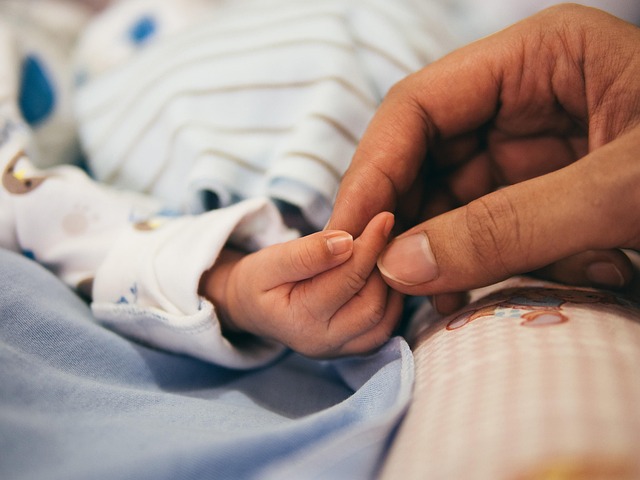This text explores the intricacies of custody arrangements and co-parenting strategies for long-term success. It discusses shared custody tips adaptable to various situations, emphasizing child custody rights, legal compliance, and effective communication. Joint custody guidelines promote collaboration, while conflict resolution techniques minimize stress on children. Custody mediation tips facilitate mutually agreeable parenting plans after divorce, ensuring a harmonious relationship between parents and children. Effective co-parenting communication is key to creating tailored plans, resolving conflicts constructively, and fostering a stable, loving environment for the child's well-being and development.
Creating long-term plans for successful custody and co-parenting is a critical step for families navigating divorce or separation. This article offers comprehensive guidance on key aspects, including understanding custody arrangements and legal rights, implementing effective co-parenting strategies, and mastering communication techniques for shared custody success. We also delve into conflict resolution, mediation tips, and joint custody guidelines to ensure positive co-parenting outcomes. Discover practical shared custody tips that foster a harmonious relationship for your family’s future.
Understanding Custody Arrangements: Rights and Legal Aspects
When it comes to creating long-term plans for successful custody and co-parenting, understanding the intricacies of custody arrangements is paramount. Custody agreements define the legal rights and responsibilities of each parent regarding their child’s care, time, and decision-making. These arrangements can vary widely, from sole custody to joint custody, with various shared custody tips and guidelines tailored to each unique situation. It’s crucial for parents to be aware of their child custody rights and the legal aspects involved, ensuring compliance with local laws and regulations.
Effective co-parenting communication is a cornerstone of successful custody arrangements. Parents should develop strategies for open and respectful dialogue, even in the face of disagreements. Joint custody guidelines emphasize collaboration and compromise, promoting solutions that prioritize the best interests of the child. Additionally, conflict resolution in co-parenting plays a vital role in minimizing stress and ensuring stability for the child. Custody mediation tips can provide valuable tools for navigating challenging conversations and reaching mutually agreeable parenting plans after divorce.
Co-parenting Strategies for a harmonious relationship
Maintaining a harmonious relationship when navigating custody arrangements and co-parenting is essential for the well-being of both parents and the children involved. Effective co-parenting strategies involve open and honest communication, where both parties share ideas, concerns, and updates about the child’s life. Establishing clear and consistent guidelines, such as joint custody or shared custody tips, can provide a sense of stability for the family.
Conflict resolution in co-parenting is crucial to avoid unhealthy tensions. Parents should aim to resolve disagreements through mediation or counseling, focusing on what’s best for the child. Parenting plans after divorce should be collaborative, considering each parent’s rights and responsibilities while fostering a positive relationship between them. These strategies promote a healthy environment, ensuring the child feels secure and loved by both parents.
Effective Communication: The Key to Shared Custody Success
Effective communication is a cornerstone for achieving successful shared custody and implementing effective co-parenting strategies. When parents separate, open and honest dialogue becomes even more critical as it facilitates the development of parenting plans after divorce that best meet the needs of the children involved. Co-parenting strategies should include clear communication channels where both parties can express their views, concerns, and preferences regarding the child’s upbringing without fear of judgment or aggression.
Joint custody guidelines emphasize the importance of resolving conflicts constructively through mediation or collaborative processes rather than engaging in heated disputes. Utilizing custody mediation tips can help parents navigate these conversations more productively, ensuring that decisions regarding child custody rights are made with the child’s best interests at heart. By prioritizing effective co-parenting communication, parents can create a stable and loving environment for their children, fostering their emotional well-being and overall development.
Navigating Conflict Resolution and Mediation for Positive Co-parenting
Navigating conflict resolution and mediation is a crucial aspect of fostering positive co-parenting following a divorce or separation. Effective communication and collaborative problem-solving skills are essential tools in achieving successful custody arrangements that prioritize the best interests of the child. Co-parents can benefit from exploring joint custody guidelines and shared custody tips to create a stable and nurturing environment for their children.
Mediation offers a structured approach to resolving conflicts, allowing both parties to express their concerns and work towards mutually agreeable parenting plans. This process encourages active listening and empathy, which are key components of effective co-parenting strategies. By engaging in open dialogue and seeking professional guidance, co-parents can navigate the complexities of child custody rights and develop practical solutions that promote a healthy relationship between both parents and the child, even after their separation.
Creating long-term plans for successful custody and co-parenting requires a deep understanding of custody arrangements, effective communication, and strategies to navigate conflicts. By recognizing each parent’s rights and following joint custody guidelines, including mediation techniques for resolution, you can foster a harmonious relationship and provide a stable environment for the child. These shared custody tips are vital for implementing parenting plans after divorce, ensuring the best interests of the child are met while maintaining a cooperative co-parenting dynamic.
